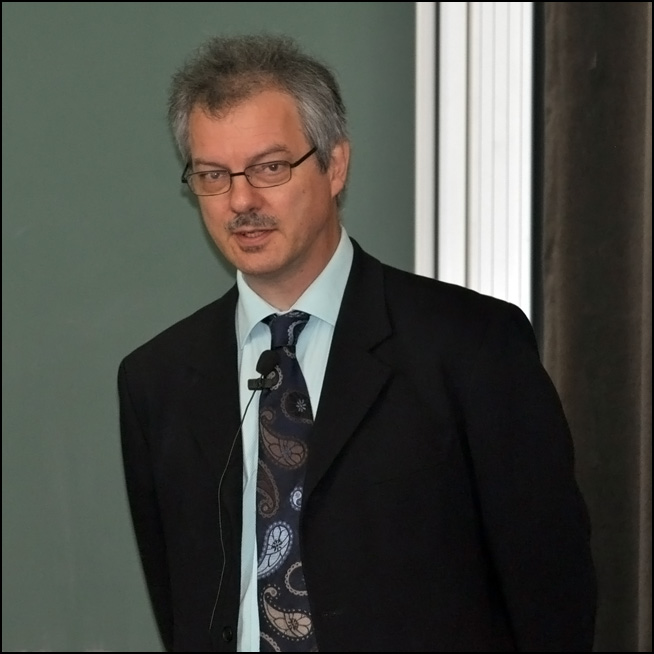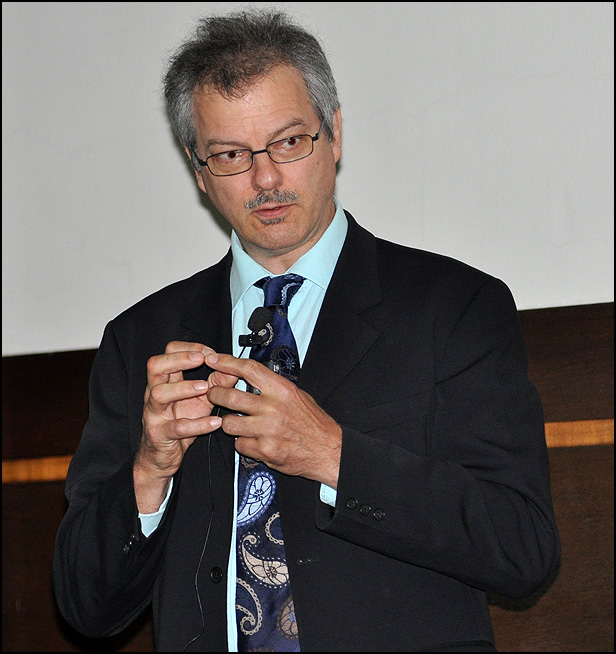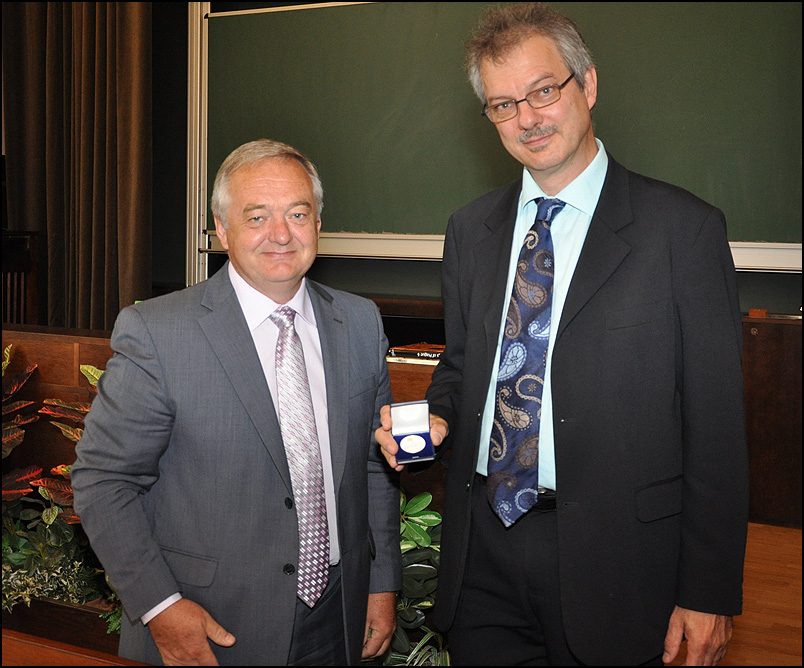Prof. Morten Meldal (University of Copenhagen, Dánsko)
Encoding in Chemistry and Biology
Abstrakt
Evolution and biology are founded on principles of encoding, self-replication, mutation and natural selection. Combinatorial chemistry takes advantage of mutational generation of large compound libraries combined with selection through often simple and well defined selection criteria imposed to compound libraries. Replication in compound libraries, however has only been realized in very special circumstances using DNA or RNA and their analogues. The inherent encoding used by biology where the code (DNA) is essentially completely removed from the functional molecules (proteins, lipids, sugars etc) is potentially very useful in combinatorial chemistry and may be implemented in various forms. There are certain criteria for an ideal encoding in combinatorial chemistry. The main problems in encoding techniques are the micro-scaling, implementation of technology, cost for each code, chemical compatibility and the rate and accuracy of decoding. There are chemical, spectroscopic tagging and positional encoding such as in array synthesis. There is radio-frequency and magnetic or optical barcode tagging. Common for these techniques is the lack of compatibility with many conditions used in organic synthesis or very high costs of unit production. We have developed an encoding technology: micro particle matrix (MPM) encoding that method that circumvents most of the problems encountered in other encoding techniques. This technique involves the random distribution and immobilization of fluorescent micro particles in polymer beads used for library synthesis. PEG-based polymers e. g. PEGA-resin are used for optimal compatibility with both synthesis and screening conditions. The technique is simple and may be performed in any laboratory using standard reactors for beading polymers. The decoding is performed in a simple setup that uses a laser, 3 cameras and a carousel to handle the beads and the imaging. The 3D-matrix of immobilized microparticles is generated from the images and is used as a unique identification tag.
The usefulness of MPM-encoding was demonstrated in the development of high affinity small molecule ligands for protein-protein interactions. The aim was to develop a ligand for human growth hormone for application in large scale hormone purification. Selective ligands were identified and their use for affinity purification demonstrated. The application of encoding allow combinatorial chemistry in areas of complex molecules where analysis is too complicated to identify the structure form single beads, e. g. organozymes, which are peptides, folded around transition metals to form excellent resin supported catalysts with enzyme like properties. Our initial studies towards combinatorial libraries of organozymes will be discussed.






